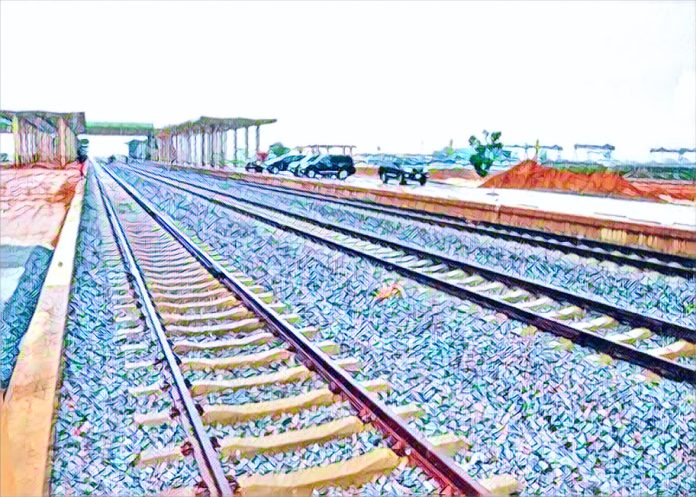The Nigerian Senate has urged the federal government to upgrade the Eastern Rail Line from narrow gauge to standard gauge, a move that would boost the economic development of the region and the country. The Senate also called for the suspension of the planned rehabilitation of the outdated narrow gauge rail, which has been abandoned and vandalised.
The Eastern Rail Line, which runs from Port Harcourt in the Niger Delta to Maiduguri in the Northeast, is one of the oldest and longest rail lines in Nigeria. It serves four geopolitical zones and connects major cities and states, such as Enugu, Makurdi, Jos, Bauchi, and Gombe. The rail line also links to the Western Line at Kaduna, creating a network that spans the country.
However, the rail line has been neglected for decades and is in poor condition. The federal government awarded a contract for its rehabilitation in April 2022, but the project has failed to take off due to lack of funds and commitment. The Chinese contractors, who were supposed to provide 85% of the financing, abandoned the project without injecting any funds.
The Senate, in a motion moved by Senator Victor Umeh and co-sponsored by 31 other senators, expressed concern over the state of the rail line and its negative impact on the socio-economic activities of the people and businesses in the region. The Senate noted that a functional railway system would reduce the cost and risk of transporting goods and passengers, as well as save the roads from constant dilapidation.
The Senate therefore resolved to urge the federal government to make arrangements for the proper funding of the construction of a standard gauge rail line on the Eastern Rail Line and the acquisition of modern coaches. The Senate also urged the government to suspend the rehabilitation of the narrow gauge rail line, which it described as a waste of resources and a disservice to the people.
The Senate’s motion is in line with the government’s plan to modernize the railway system in Nigeria and create a nationwide rail network that would enhance the economic diversification of the country away from oil dependence. The government has already completed some segments of the standard gauge rail line, such as the Abuja-Kaduna and the Lagos-Ibadan lines, and has flagged off others, such as the Kano-Maradi and the Lagos-Calabar lines.
The Eastern Rail Line, however, has been left out of the standard gauge project, despite its strategic importance and potential to boost the industrial and agricultural sectors of the country. The Senate’s motion is therefore a welcome development that could revive the hopes of the people and businesses in the region for a better and faster transportation system.
The motion also reflects the growing demand for improved infrastructure and services in the country, especially in the wake of the COVID-19 pandemic, which has exposed the weaknesses and gaps in the existing facilities. The government, in response, has pledged to invest more in infrastructure development and maintenance, as part of its economic recovery and growth plan.
The upgrade of the Eastern Rail Line to standard gauge would not only benefit the region, but also the entire country, as it would facilitate the movement of people, goods, and services across the nation. It would also contribute to regional integration and cooperation, as the rail line would link Nigeria to its neighbours, such as Chad and Cameroon. The Senate’s motion is therefore a step in the right direction that deserves the support and attention of the government and the stakeholders.
Source: Business Day Nigeria



